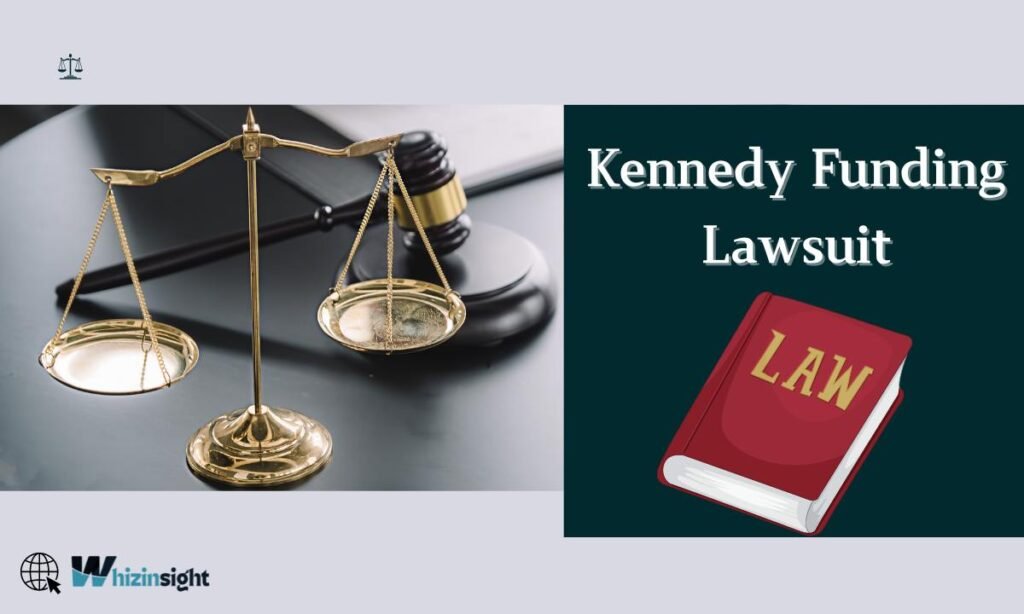A Closer Look at Kennedy Funding Lawsuit: What’s Going On?
Let me start by saying that when it comes to lending, especially in real estate, you’re going to see a lot of companies like Kennedy Funding make big promises. They’re the kind of lender that steps in when traditional banks won’t even give you the time of day, offering fast cash through bridge loans when you’re desperate for funding.
However, as with most things that seem to solve your problems quickly, there’s usually a downside, and in some cases, it’s significant. The Kennedy Funding lawsuit has highlighted these concerns that have emerged over the years. We will look into those in this article.
Kennedy Funding Lawsuit: The Basics
So, let’s break it down. Kennedy Funding is the world’s leading direct private lender known for short-term bridge loans. If you are stuck and need cash quickly, they say they’ve got your back. But here’s the thing: bridge loans aren’t exactly a walk in the park. They come with high risks because they’re meant to be temporary solutions until you can secure long-term financing. On the surface, they look like a lifeline, but the reality can be much more complicated.
Here’s where things start to get tricky. Kennedy Funding, one of the industry’s major players, has had more than its share of legal battles. It is interesting how a company can be efficient at approving loans quickly yet still get caught up in many legal disputes over its practices.
The Greenwich Landing Case and the Kennedy Funding Lawsuit
Let’s talk specifics. One of the more talked-about cases involving Kennedy Funding is Kennedy Funding Inc. v. Greenwich Landing LLC. The gist is that Kennedy wanted to foreclose on a property owned by Greenwich Landing because the company defaulted on a loan. There’s nothing new there. But the kicker was that Kennedy Funding didn’t own the mortgage then—they acted as an agent for other lenders.
Most would assume that not having the official paperwork would stop them from foreclosing. It seems logical. But Connecticut law has this little clause that says if you’re the holder of a promissory note (which Kennedy Funding was), you can still go ahead with foreclosure. And that’s precisely what the court ruled. This ruling raises questions about the system.
Construcciones Haus Sociedad: Another Day, Another Kennedy Funding Lawsuit

There’s another case that caught my attention: Construcciones Haus Sociedad v. Kennedy Funding Inc. This one involved a Mexican real estate company that accused Kennedy of hiring an unqualified appraiser. The appraiser, who wasn’t licensed, undervalued the property so Kennedy could avoid giving the total loan amount. Instead, they kept a chunk of the commitment fee—$120,000.
The Mexican company wasn’t going to let that slide. They took Kennedy to court, and guess what? The judge allowed the fraud and consumer deception claims to go forward. That’s saying something, right? But they tossed out the racketeering claim, which shows that not everything sticks in court, even when things feel off.
Predatory Lending? It’s Up for Debate
Many of these lawsuits center around the same issue: Borrowers feeling like they were kept in the dark about the actual terms of their loans. Complaints about hidden fees, steep interest rates, and vague loan terms keep surfacing. I’m not saying Kennedy Funding is the worst company out there, but when you see patterns like this, it’s hard not to raise an eyebrow.
Take the Shelton v. Kennedy Funding Inc. case as an example. It almost feels like one of those stories you hear and think, “No way, that can’t be real.” But it was. In the end, the courts sided with the seller, which is excellent, but the fact that things got messy in the first place? It makes you pause and reconsider.
What the Kennedy Funding Lawsuit Means for Borrowers?
From everything I’ve read and heard, many borrowers seem blindsided by the small print in these contracts. While quick cash looks like a miracle solution when you’re in a bind, it often comes with complications that can bite you later.
And for Investors? It’s Complicated
Let’s switch gears and think about this from an investor’s point of view. Kennedy Funding has made a name for itself with its bold strategies, and that has helped them stay in the game during tough times. However, with all their legal issues, including the ongoing Kennedy Funding lawsuit, it’s hard not to feel a bit worried. If I were an investor, I’d think twice about jumping in. We’re already seeing some investors pull back because they’re concerned about how honest and straightforward Kennedy is. It’s a tricky situation.
But let’s not kid ourselves—those ongoing legal issues aren’t exactly a confidence booster. If I were an investor, I’d be feeling a little uneasy. Seeing one legal problem after another cropping up makes you think twice about diving in. We’ve even noticed some investors taking a step back, clearly worried about how open and ethical Kennedy is. It’s a bit of a minefield.
Still, they remain a big player in the game. They’ll stay afloat if they continue settling or winning some of these Kennedy Funding lawsuits without too much fallout. But here’s the thing—you can handle only so much legal trouble before it catches up with you.
The Final Thought: Be Careful
One big takeaway from digging into the Kennedy Funding lawsuit is this: real estate lending is anything but simple. But these lawsuits? They’re a clear signal that it’s time to pay attention. If nothing else, they’re a reminder to proceed with caution. For borrowers, the takeaway is simple: be extra careful and know exactly what you’re signing up for.
Also, Read About: Frontlines Edutech: Your Gateway To Enhanced IT Learning And Career Opportunities





